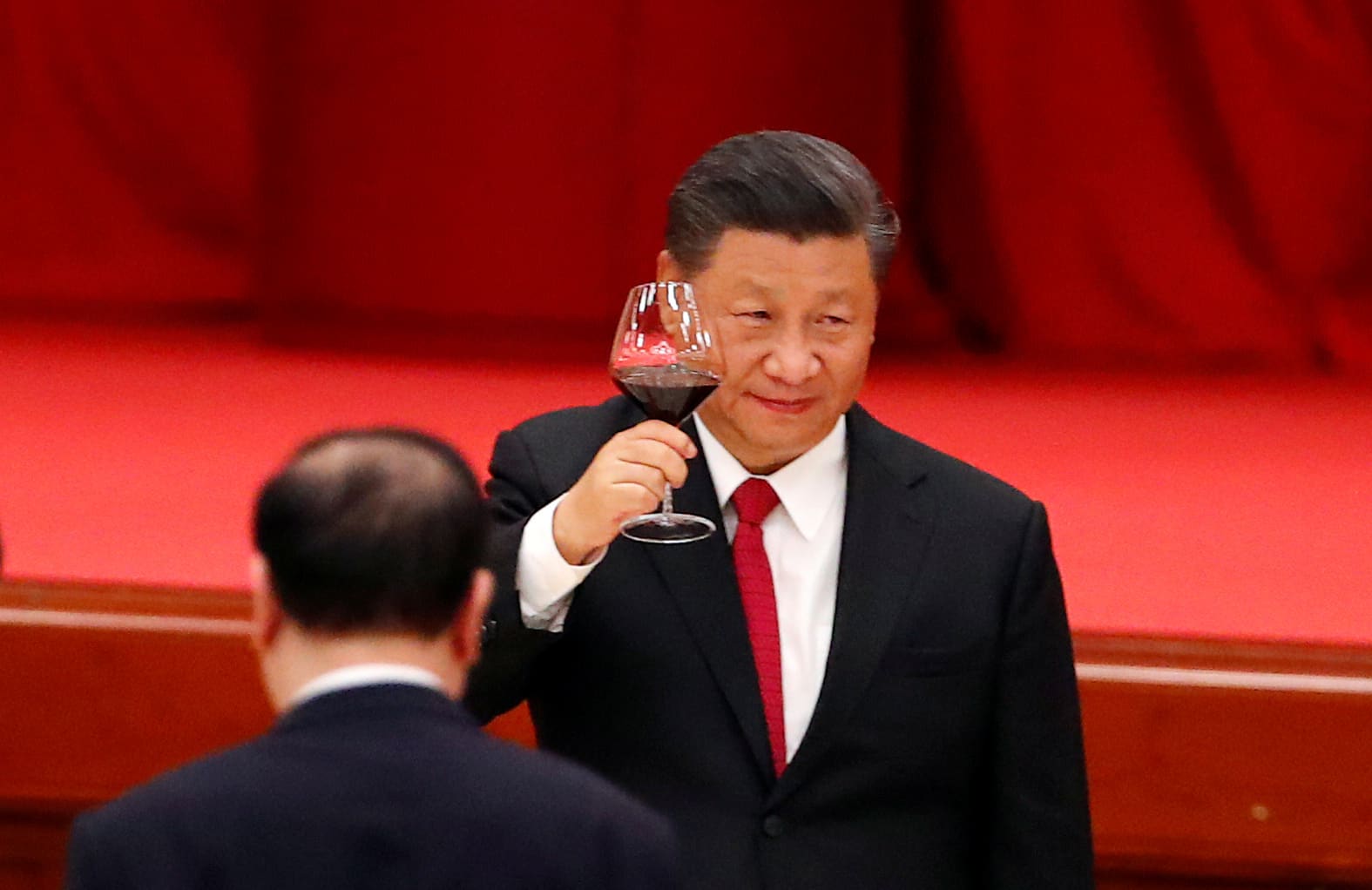China prepares for a big annual meeting to chart a growth strategy

Chinese President Xi Jinping attends the National Day reception on the eve of the 71st anniversary of the founding of the People’s Republic of China in Beijing, China September 30, 2020.
Thomas Peter | Reuters
BEIJING — The Chinese government is set to kick off an annual parliamentary meeting this week for approving national priorities for 2021.
The gathering of delegates, known as the “Two Sessions,” has overseen such changes as President Xi Jinping‘s abolition of term limits in 2018 and the proposal for a new security law for Hong Kong last year.
The otherwise generally symbolic meeting takes on particular significance this year as it marks the beginning of China’s five-year development plan — the 14th such in the country’s history — and the 100th anniversary of the ruling Communist Party.
Authorities are expected to lay out details on topics ranging from employment targets to management of the semi-autonomous region of Hong Kong.
Such comments will come as Beijing seeks to show progress on development promises made to the country of 1.4 billion people, and build up China’s competitiveness in a world shocked by the coronavirus pandemic and growing wary of the Asian giant’s rise.
No specific GDP target expected
The “Two Sessions” parliamentary meeting is slated to begin Thursday with the opening of the Chinese People’s Political Consultative Conference, an advisory body. The National People’s Congress legislature is scheduled to kick off its annual gathering on Friday.
That’s usually when the government releases its economic work report, a document laying out GDP, employment, inflation and other growth goals.
Most economists do not expect authorities will release a GDP target this year, after making a rare decision not to do so at last year’s parliamentary meeting, which was delayed by about two months due to the coronavirus pandemic.
Li-Gang Liu, managing director and chief China economist at Citi Research, said in a note that if the report lays out a GDP target directly or indirectly, the figure could top 7%. That’s according to growth goals announced by different Chinese provinces and a commitment to double GDP from its level in 2010, Liu said.
On monetary policy, although authorities have emphasized they will not abruptly reverse stimulus policies, “we expect China’s monetary policy conditions will visibly tighten this year,” Liu added.
China’s economy grew by 2.3% last year, despite the shock of the coronavirus pandemic, as authorities rushed to control the domestic spread of the virus and support businesses with tax cuts and cheaper loans. That GDP growth followed expansion of 6.0% in 2019, according to official figures.
On employment, economists generally anticipate China will aim to create more than 10 million new urban jobs this year, up from 9 million last year.
A plan for the next five years
The parliamentary meeting will also share details on and approve China’s 14th five-year plan. The development strategy for the world’s second-largest economy comes as it has reached historic trade agreements with Asia-Pacific neighbors, while facing greater pressure from a United States that increasingly considers China a competitor.
The plan’s emphasis on “boosting domestic demand, supply chain upgrading, technology self-sufficiency and further opening up domestic markets are the main tools to hedge against external uncertainties,” Bruce Pang, head of macro and strategy research at China Renaissance, said in a report.
In addition to specifics on how China might address national security issues on technology and energy, authorities are expected to lay out plans for defense spending in 2021.
Details on how Beijing plans to strengthen control of Hong Kong could also emerge from this year’s parliamentary session.
Late last month, Xia Baolong, director of the Hong Kong and Macao Affairs Office of the State Council and the vice chairman of the Chinese People’s Political Consultative Conference — the political advisory body meeting during “Two Sessions” — released a speech on how Hong Kong’s electoral system should be changed so that only central government supporters would oversee the semi-autonomous region.
The parliamentary meeting is expected to last around 10 days and include press conferences with Foreign Minister Wang Yi and Premier Li Keqiang.




